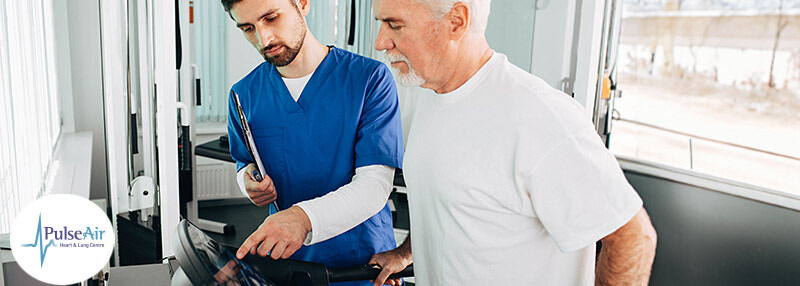Recovering from a heart attack, heart surgery, or managing a chronic heart condition can be challenging. However, cardiac rehabilitation plays a crucial role in helping individuals rebuild their strength, improve heart health, and enhance their overall quality of life.
What is Cardiac Rehabilitation?
Cardiac rehabilitation is a medically supervised program that helps people recover from heart-related events and manage chronic heart conditions. It typically involves a combination of exercise, education, and emotional support, all tailored to meet the specific needs of the individual. The goal of cardiac rehabilitation is to help patients regain their physical fitness, reduce the risk of future heart problems, and improve their overall well-being.
Benefits of Cardiac Rehabilitation
Cardiac rehabilitation offers numerous benefits for individuals recovering from heart attacks, heart surgery, or managing chronic heart conditions:
- Improved Heart Health: Regular exercise, a key component of cardiac rehab, strengthens the heart muscle, improves circulation, and helps manage risk factors such as high blood pressure, high cholesterol, and obesity.
- Faster Recovery: Participating in a structured cardiac rehab program can accelerate the recovery process after a heart attack or surgery, allowing patients to return to their daily activities sooner and with greater confidence.
- Reduced Risk of Future Heart Issues: Education provided during cardiac rehab focuses on lifestyle changes, such as adopting a heart-healthy diet, quitting smoking, and managing stress, all of which are critical for reducing the risk of future heart problems.
- Enhanced Quality of Life: By improving physical fitness, emotional well-being, and overall heart health, cardiac rehabilitation helps patients enjoy a better quality of life. Many patients find that they can return to activities they once enjoyed with renewed vigor.
- Emotional Support: Recovering from a heart event can be emotionally challenging. Cardiac rehab provides a supportive environment where patients can share their experiences and receive encouragement from healthcare professionals and peers.
Components of a Cardiac Rehab Program
Cardiac rehabilitation programs should be comprehensive, addressing all aspects of heart health:
- Exercise: A personalized exercise plan should be developed based on the patient’s condition and fitness level. The program should include aerobic exercises, strength training, and flexibility exercises, all aimed at improving cardiovascular fitness and overall strength.
- Education: Patients should receive education on heart health, including the importance of a balanced diet, the benefits of regular physical activity, and strategies for managing risk factors like high blood pressure, high cholesterol, and diabetes.
- Lifestyle Counseling: The program should include counseling to help patients adopt and maintain a heart-healthy lifestyle. This may involve dietary guidance, smoking cessation programs, and stress management techniques.
- Emotional Support: A comprehensive program should offer psychological support and counseling to help patients cope with anxiety, depression, and the emotional challenges of recovery.
Cardiac rehabilitation is a vital part of the recovery process for individuals with heart conditions. By participating in a structured program, patients can significantly improve their heart health, reduce the risk of future heart events, and enhance their overall quality of life. At PulseAir Heart and Lung Centre, we are here to support you on your journey to better heart health. Learn more about our heart-related services on our website.


